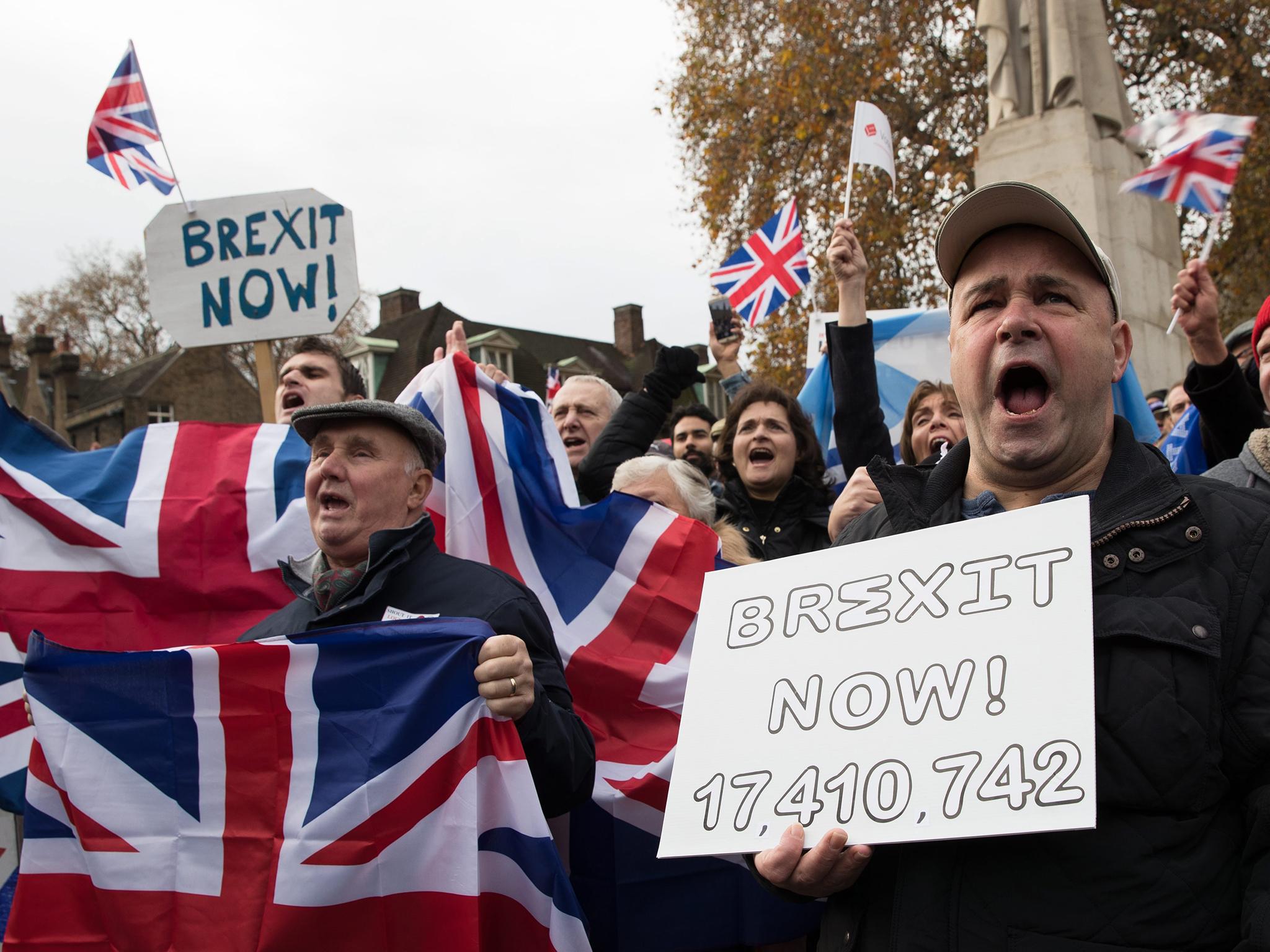Article 127 might keep Britain in the EU party - outside by the loos
Quite how this newly ebullient Britain might remain at the party is the subject of a seemingly newly discovered Article 127, a document that may appear to keep Britain in the EU, not quite by the back door but the outside toilet


Your support helps us to tell the story
From reproductive rights to climate change to Big Tech, The Independent is on the ground when the story is developing. Whether it's investigating the financials of Elon Musk's pro-Trump PAC or producing our latest documentary, 'The A Word', which shines a light on the American women fighting for reproductive rights, we know how important it is to parse out the facts from the messaging.
At such a critical moment in US history, we need reporters on the ground. Your donation allows us to keep sending journalists to speak to both sides of the story.
The Independent is trusted by Americans across the entire political spectrum. And unlike many other quality news outlets, we choose not to lock Americans out of our reporting and analysis with paywalls. We believe quality journalism should be available to everyone, paid for by those who can afford it.
Your support makes all the difference.If you think of the European Union as a house party, Britain’s behaviour has been nothing short of legendary.
It was Britain that brought the booze and drugs (the single market – Thatcher’s invention). Britain invited a load of people it then decided it didn’t like (the UK played a central role in making the EU “wider not deeper” when 11 new nations, most of them Eastern European, joined in 2004). Now Britain has stood on a table, loudly abused everyone, declared it’s got a better party to go to, in India or “Chanada” or “Ausmerica” or somewhere, and staggered off in the direction of the exit.
But will it make it? Even if Britain makes it out the front door in a blizzard of slurred vituperation, the chances of Juncker, Verhofstadt, Merkel and the rest coming down at dawn to find it collapsed in the flower bed has grown suddenly more likely.
Theresa May said in her conference speech that there would be no attempt to “stay in by the back door”, a phrase interpreted by the financial markets and others to mean it would leave the single market (a degree of interpretation was required, given that remaining in something you are already in, via its exit, is not technically possible).
Quite how this newly ebullient Britain might remain at the party is the subject of a seemingly newly discovered Article 127, a document that may appear to keep Britain in the EU, not quite by the back door but the outside toilet. You can still hear the music, and while there might not be central heating, there is at least a roof overhead (and, if it comes to it, a plentiful supply of water that might just be okay to drink).
It’s legally complex, which should come as no surprise, but Article 127 of the Agreement on the European Economic Area, somebody has just noticed, would keep Britain within the single market even after the triggering of its attention-seeking sibling, Article 50.
The European Economic Area, you almost certainly know, includes the EU as a whole plus Iceland, Norway and Liechtenstein. It was designed as an escalator leading towards full EU membership. No nation has ever attempted to run down it, and under the influence too, but there’s a first time for everything.
It requires acceptance of the EU’s “four freedoms” – of goods, services, capital and, crucially, people – and as such would provide for a Brexit so soft as to be barely noticeable. In Norway, migrant workers pick strawberries for appallingly low wages, and the country pays in to the EU budget while exerting no influence over how it is spent.
But if, next week, the Supreme Court decides it agrees with the High Court, that the triggering of Article 50 can only be done by Parliament, there is every reason to imagine the same view will be taken with Article 127.
Leaving the European Union is something the nation’s 650 MPs will almost certainly get on board with. Leaving the single market is another matter. The Tory MP Stephen Phillips, himself a Leave voter, stood down as an MP three weeks ago, in protest at his party’s teetering towards a more radical exiting of the European Union than he had imagined.
The idea that there is a mandate for leaving the single market is highly questionable. 52 per cent voted to leave, 48 per cent voted to remain. There does not need to be a very large contingent of people among that 52 to share Phillips’s opinion for the question to become very difficult indeed.
That the Brexit question bites with great jaws at the flanks of both the main parties is what is causing both of them to accept it without protest. Conservatives and Labour alike will have to do some very deep thinking over whether rejecting Article 127 betrays or serves their Brexit-backing voters. That’s the kind of question that needs a very clear head indeed.
Join our commenting forum
Join thought-provoking conversations, follow other Independent readers and see their replies
Comments